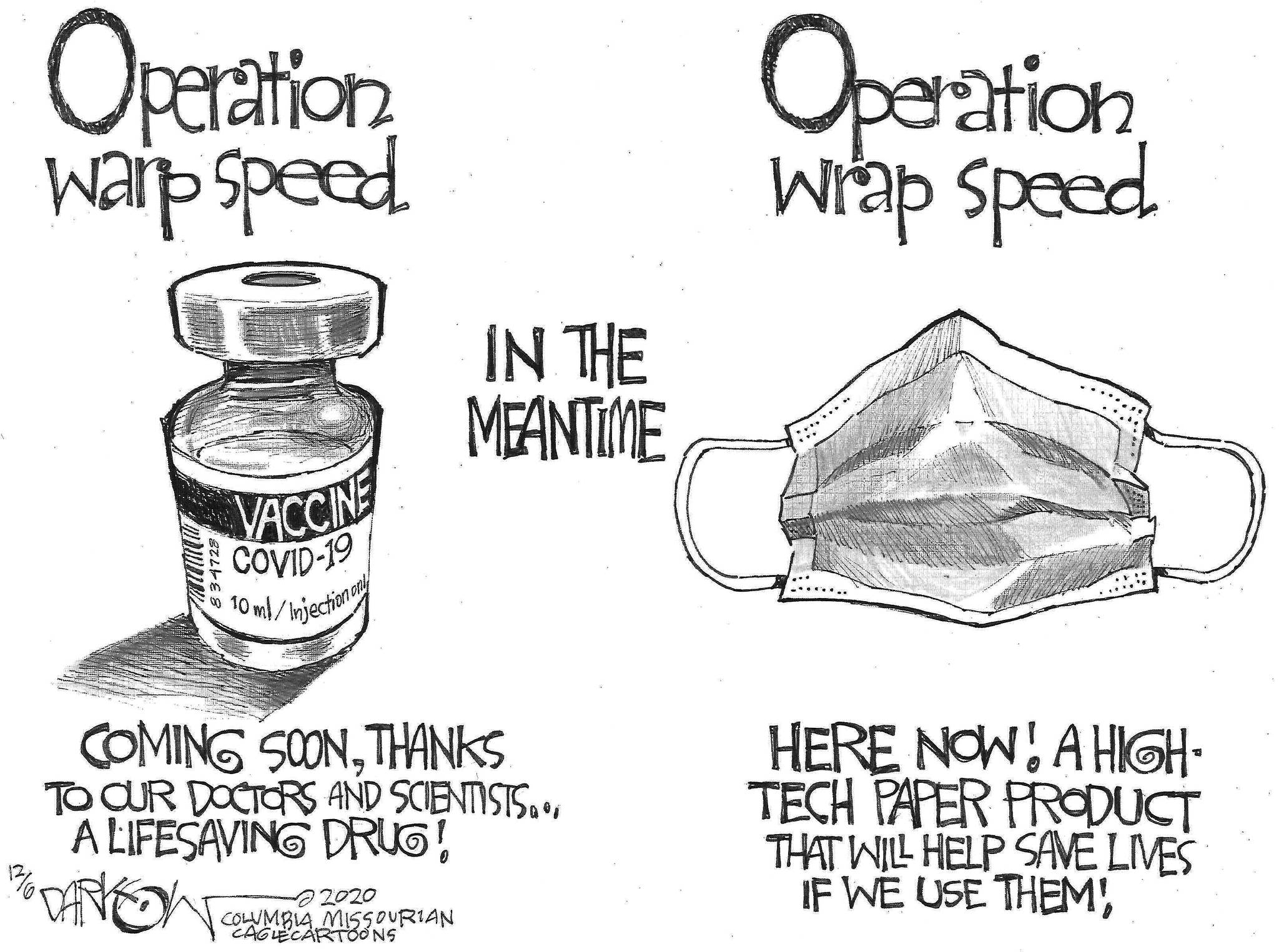While President-elect Joe Biden’s recent suggestion that all Americans wear face masks for the first 100 days of his presidency was as much public relations as policy, it was a refreshing change in the messaging of the last eight months for an anxious nation grappling with an unprecedented public health crisis.
Biden’s “mask up, people” suggestion was a lighthearted attempt to highlight his differences with the Trump administration over dealing with the COVID-19 pandemic, which has infected more than 15 million Americans and killed more than 300,000.
“Throw off your masks; you have nothing to lose but your health” has been Trump’s call to the American people as he routinely and crudely attacked his own administration’s public health experts, dismissing convincing evidence that personal protections — masks, social distancing and avoiding public gatherings — are effective in halting the spread of a pathogen.
To drive his point, Trump refused to wear a mask and defiantly whipped up crowds of tens of thousands of supporters at campaign rallies while ridiculing Biden as a weakling who always wore a mask at his infrequent campaign appearances.
Even upon his release from the hospital, where he was treated after contracting the virus, Trump returned to the White House and made a public spectacle of ripping off his mask and exhorting people to not fear the virus or allow it to dominate their lives.
Recognizing that it is beyond his authority to require mask-wearing, Biden framed his suggestion as a request that the American people join hands with him in the struggle to defeat the pandemic.
It is a public relations gesture, to be sure, but it cost him nothing politically. There was no risk for him to throw the weight of the Oval Office behind the mask-wearing idea while the upside — displaying an understanding of the seriousness of the outbreak and the toll it’s taken rather than dismissing it — is considerable.
Those who’d consistently refused to wear masks as an intrusion on their personal liberty obviously won’t be swayed by Biden’s suggestion, but they are outnumbered by the majority of Americans to whom a face covering while outside the home is an exceedingly small inconvenience to help protect themselves and their families from a devastating illness.
Biden’s suggestion is a call to shared responsibility.
It was to that population that Biden’s mask-wearing appeal was directed, confident that it would resonate particularly in light of the out of control surge of the virus since September.
After easing somewhat during the summer, the re-emergence of the virus has forced states to re-impose lockdowns, close schools and restrict business activities.
Even with the approval of a vaccine and its deployment imminent, providing immunity to a majority of the population will consume the better part of 2021, pushing a return to normal and robust economic recovery to 2022.
In the meantime, the need for masks will remain. Various studies have predicted that upwards of 150,000 lives could be saved over the coming months if mask-wearing approached universal.
Biden owes his election victory in considerable measure to the Trump administration’s ineffective response to the pandemic. The American people gave Biden their trust that he would see it as an existential threat to the country and bring the expertise and resources of government to bear on it.
His recent announcement that he intended to retain Dr. Anthony Fauci, director of the National Institute of Allergy and Infectious Diseases since 1984, is a step in that direction.
In his role as an advisor to the Trump White House, Fauci’s experience must have been like the guy who went to a meeting of the Flat Earth Society, and he was the only person in the room who knows its round.
Thanks to Biden, he’ll have an opportunity to prove it to everyone else much to the benefit of the American people.
Carl Golden is a senior contributing analyst with the William J. Hughes Center for Public Policy at Stockton University in New Jersey. You can reach him at cgolden1937@gmail.



